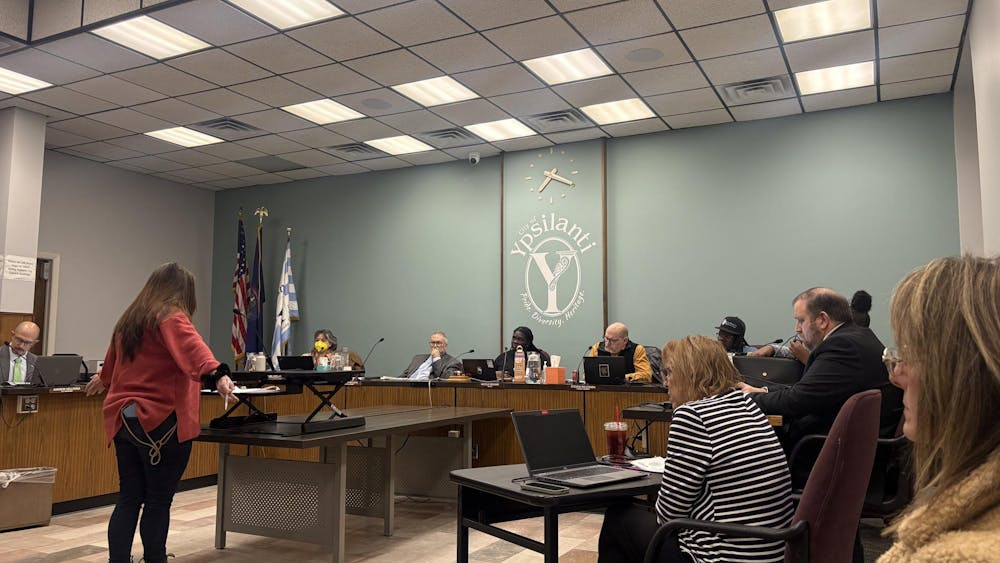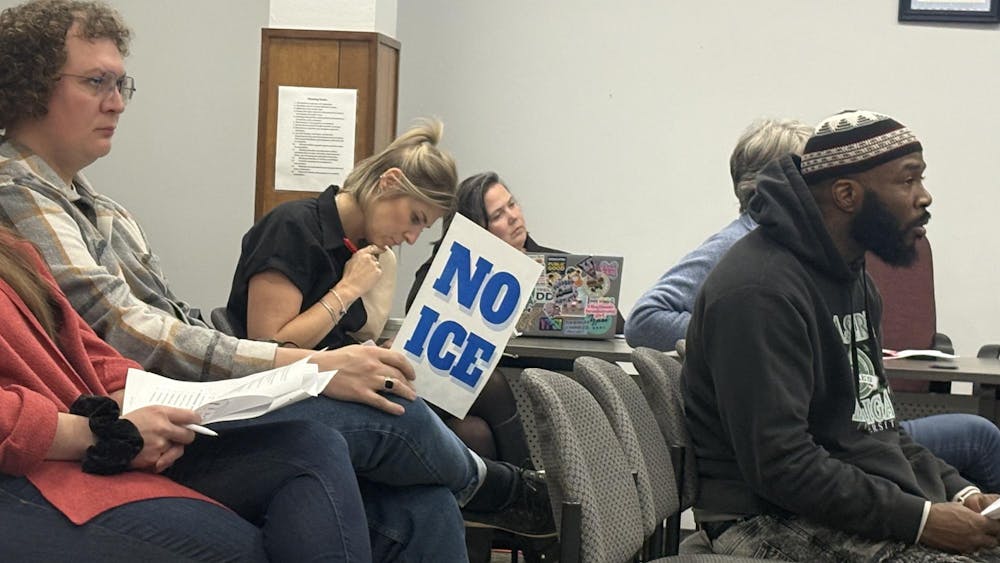Eastern Michigan University’s Women’s and Gender Studies Department, founded in 1975, has been celebrating Women’s History Month this March.
The 2010 keynote speaker, Daisy Hernández, spoke to more than 100 students and faculty last Thursday in the Student Center Auditorium on race, gender, sexuality and other issues affecting young women of color.
Daisy Hernández is a personal essayist and co-editor of the 2002 book “Colonize This! Young Women on Today’s Feminism,” which is a collection of inspirational personal essays by women of color.
She is also the editor of ColorLines Magazine, a national newsmagazine covering race and politics, and has written for a range of publications including the National Catholic Reporter to Bitch magazine.
As audience members trickled in to the auditorium, soft jazz played overhead and conversations ranged from the modern feminist movement to plans for the weekend.
Though the audience was comprised mostly of women, there were a handful of men and every racial demographic of various ages were represented.
Hernández spoke in an easy manner about the “the month of the ‘f’ word,” referring to feminism. Hernández spoke of the transformative nature of stories and of the stereotypical stories about feminists: they all hate men, have no sense of humor and never wear lipstick—and the fallacy in those stories.
To Hernández, stories are important in shaping our views and expectations, sometimes uniting people but more often, dividing them.
One such story is the belief that racism is over, especially now that America has a black president. This story goes on to explain that minorities simply need more resources and to work hard to achieve their goals.
According to Hernández, this simply is not true. One of her examples was the Gates arrest controversy from last year. On July 16, Harvard University professor Henry Louis Gates, Jr. was arrested at his Cambridge, Mass., home by a local police officer responding to a 911 caller’s report of men breaking and entering the residence.
Here was an accomplished professor at an Ivy League university arrested in his own home, proving a point Hernández has made in her writings repeatedly: black men are targeted by authority figures and men in prison do not bode well for women.
“I think of women’s issues in a really expansive way,” explained Hernández in an interview following her discussion. “I think that criminal justice is a part of women’s issues. In the Black and Latino community, when you have a disproportionate number of men behind bars, that affects the rest of the community. That affects the women that are left behind.”
Modern feminism is not so much about burning bras and hating men as insuring equal rights for everyone within a community. The modern feminist may be a woman or a man, black or white, old or young.
“I think feminism is about as much about saving men as it is about saving women. It’s about examining the stories of what makes a man a man,” Hernández said.
Another point Hernández made was the power of writing, be it in blogs, on Facebook or in books. Through writing, people can raise awareness about issues that are important to them. It was this final point that seemed most inspirational to the audience.
“I never would of thought of having an audience through Facebook, those are just my friends! But if I tell them about the things I see, and they tell others … I think I could start a movement,” said one male student who did not want his name to be used.
Another audience member, Julia, a self described “non-traditional senior” at almost 50-years old, said the discussion was an “excellent and interesting narrative that really taught people who is marginalized [in society] and how we can take our projects, our passions, seriously.”
“For EMU, feminism is important because women are not equal on campus,” said Laura Hoehner, graduate assistant for the women’s and gender studies department. “Women are still afraid of walking alone on campus from being raped, jumped or robbed. In addition, women still are not paid equally, $.75 to a man’s $1.00. Many young girls getting jobs for the first time or not living at home, they sometimes do not know their rights as a person or a woman because of what has been taught by society.”
While Hernández’s long-range impact on her audience is yet to be determined, the seeds of activism have been planted.
To join in the celebration of Women’s History Month, students are encouraged to visit www.emich.edu/womenshistorymonth and attend one of the many upcoming events still ahead for March.









